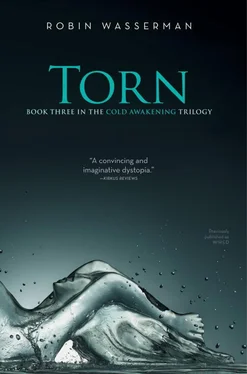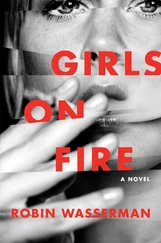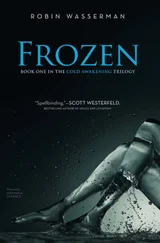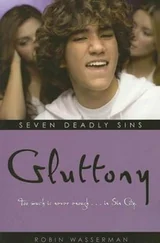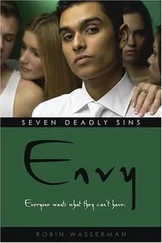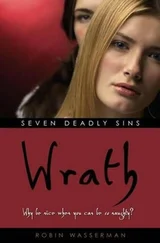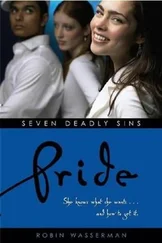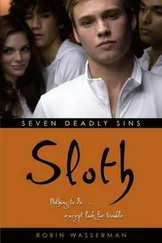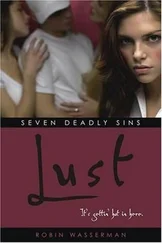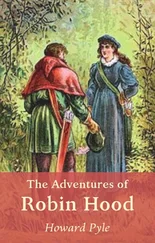Not anymore.
“Are we going to talk about it?” I said.
“You just said you don’t want to anymore.”
“Not my father. The vidlife. Jude.”
“What does Jude have to do with the vidlife?” Riley said, too eager. “Did he message you?”
He didn’t know.
“What did you think of it?” I asked cautiously. “The vidlife.”
Riley shrugged. “I didn’t watch.”
“None of it?”
“You told me I wouldn’t like it,” he reminded me. “The stuff they’d make you do.”
“Oh.” I should have been relieved. “So you didn’t watch at all? Any of it?”
“Did you want me to? You said—”
“I know what I said.”
“So now you’re pissed?” He sounded half bemused, half annoyed. “What, you want me to dig an archive, watch it right now? Because I will.” He reached for his ViM, and—even though it was likely a bluff—I grabbed his arm.
“No, you’re right. It’s not like I’m some kind of famewhore trolling for fans. I just figured you’d be… curious.”
And maybe a little jealous.
Not that I wanted him to be jealous.
I definitely wouldn’t have wanted him to see me kissing Caleb or tearing out Pria’s hair. And I wouldn’t have wanted him to see me with Jude.
But I couldn’t believe he hadn’t even looked, not once.
“It would’ve felt like spying on you,” he said quietly. “I wasn’t going to do that.”
I hated myself for questioning him. “I wouldn’t have been able to resist,” I said. “If it was you.”
“I know.”
Sometimes I loved that he knew me so well.
Sometimes I didn’t.
Something crackled in the bushes. I jerked around, but there was nothing there. No eyes peering out of the darkness. Just the patter of the rain.
“Can we go back to your apartment?” I said, suddenly feeling exposed. If we were going to talk about Jude, we were going to do it where no one could overhear us.
He’s not following me, I thought. But that was the thing about Jude—I had no idea what he was doing, or why.
“I told you; it’s a mess.”
“And I told you I don’t care.”
“I don’t know why you’d want to go back to that shit-hole.”
“Because I want to go somewhere , and you’ve made it pretty clear we can’t go to my place.”
I shouldn’t have said it, scratching the wound before it had a chance to scab over.
“I should go,” he said. “You’re tired; I get it.” I could feel him shifting his weight, getting ready to stand.
“No.” I took his hand. We had to get used to each other again. That was all. It had been a long and strange two weeks. We needed to find our rhythm. “Please. Let’s… talk. Tell me what you did while I was away.”
“Same old stuff. You know.”
“I don’t, actually.” Trying to sound playful, not annoyed.
He shrugged. “Doesn’t matter.”
I felt like we were slipping back to the beginning, before we’d known anything about each other, when there’d been nothing to say. I brushed my fingers along his forearm, then traced them up his arm, along his collarbone, resting them on his chest, over the spot where his heart would have been. “Please,” I said again. “I just want to pretend the last two weeks didn’t happen, that I was here. With you. So tell me what we would have been doing, so I can picture it.”
He choked out a bitter laugh. “You wouldn’t have wanted to be here, not for that.”
“For what?” I could hear it in his voice: gathering clouds.
“I wasn’t going to tell you this—” He stopped himself. “I mean, I wasn’t going to not tell you. I didn’t think it mattered.”
It wasn’t like Riley to circle the point like this. He was nervous. That couldn’t be good.
“Sounds like it matters,” I pointed out.
He stood up, crossing his arms over his chest. “I went back to the city.”
“What?” Now I was on my feet. “Why would you go back to that place?”
“ That place is home.”
“Not anymore.”
“I just wanted to go.” He uncrossed his arms and curled one hand into a fist, closing it inside the other. “I knew you wouldn’t get it.”
Someone had to stop; someone had to give. I drew close to him, though he kept his eyes fixed on the trees. “Riley.” I touched his shoulder, but he didn’t turn. “That place isn’t safe for you anymore. Things are different now.”
“Yeah.” He didn’t sound angry anymore, only tired. “And you’re just looking out for me, right?”
“That’s my job,” I said lightly, as if none of this mattered. I turned him around, forcing him to face me.
He smiled. “Maybe you should ask for a raise.”
“I’m pretty satisfied with my current compensation level,” I said, touching his lips. “Especially the perks.” I leaned forward, I closed my arms around him, I kissed him . But he let me. Then we were on the ground again, limbs tangled, bodies sinking into the damp earth, finally in sync. It was how we ended all of our arguments, and so far it was effective. I tried not to think about what we would do when it wasn’t.
“Maybe real was a matter of perspective.”
Itold Riley the next day, on neutral territory. The park was technically called a “free expression zone,” but everyone knew it as Anarchy. The brainstorm of some aging trenders and sellout free spirits who’d outfitted their mansions, garages, and shoe closets and still had credit to spare, Anarchy was designed to be a space where no behavior or appearance, no matter how odd, could be punished. The odder the better, in fact—in Anarchy only banality was forbidden, and the only consequence was invisibility. Little wonder it was always full.
Unless you were crammed into a corp-town, crowds were mostly the kind of thing you read about in a history book or played at with virtual-reality hordes on the network. Crowds had gone out of fashion right along with pedestrian-packed sidewalks and sardine-can residence buildings and all those empty shells that once warehoused people who wanted to shop, people who wanted to eat, people who wanted to watch. Trap enough people inside a shell like that and the shell becomes a prison; the people become perfect targets. Blow up enough of them and people stop going. For a long time no one wanted to shop, eat, or watch as much as they wanted to stay in one piece. That paranoia had faded with the bad old days of suitcase nukes and bio bombs, but the effects lingered. Why suffer through a crowd when you can have anything you want delivered to your door for free, when you can play with the masses on the network and then, as soon as they get too loud, too sweaty, too smelly, shut them off and be alone again? These days there were clubs and parties, there was high school—there were crowds to be had, real live people clumping together en stinky, sweaty, stuffy masse. But they were always carefully selected, security screened, invitation only. They were always the same. Random swarm of strangers? We left that to the corp-towns, the cities, and the crazies in the Brotherhood. And now, Anarchy.
It was where you went if you wanted to be seen; it was also the perfect place to fade into the background if you didn’t. It was a free-for-all that let the luxe class imagine, for a safe, limited time, that they too lived in a lawless city of anything goes. No one was different, because there was no same. It was the kind of engineered, officially sponsored freak zone I was forced to hate on principle—officially endorsed transgression being a contradiction in terms.
Читать дальше
